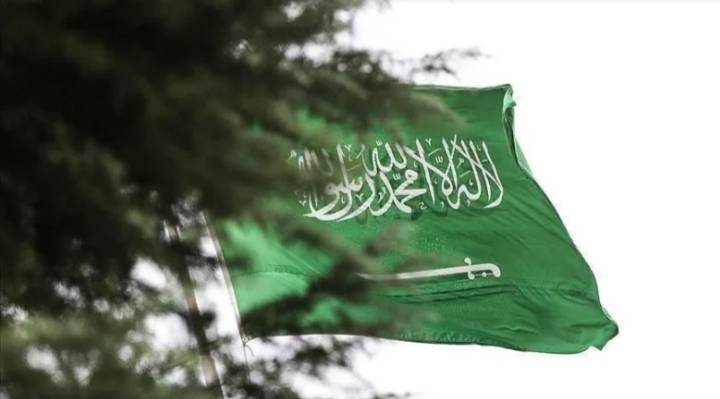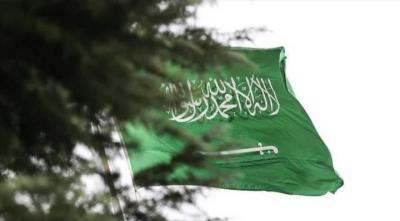Saudi Arabia's recent announcement about sending two Saudi astronauts, one of whom is a woman, to the International Space Station in the second quarter of this year—marking a first of its kind—raises questions about the country's serious ambitions regarding leveraging space economy as a future megasector that intersects global visions of sustainability and technology.
Saudi Arabia has established the "Supreme Council for Space," chaired by the Crown Prince, and restructured the Communications Authority to be named "Communications, Space, and Technology Authority," leading to discussions about investments and expected industries in this field, along with anticipated returns on local GDP. The Minister of Communications and Information Technology previously noted that the focus will be on the space market industry and stimulating research and innovation in this area, followed by moving towards organizing and governing it.
This decision positions Saudi Arabia among the pioneers in leading the new space economy and adopting its emerging activities, and it will help provide the infrastructure necessary for the sector’s growth and prosperity. The authority will play a central role in creating regulations, licenses, coordination, and collaboration with space regulators locally and globally, building relationships with industry players, and providing national regulatory expertise and capabilities in the sector.
#### Developing Competencies
In September of last year, the Saudi Space Authority launched the Kingdom's Astronaut Program, aiming to qualify national personnel skilled in long and short-term space missions. The program also seeks to educate Saudi astronauts for participation in scientific experiments and international research related to space.
The goal is to capitalize on the promising opportunities presented by the global space sector and its industries and to contribute to research that benefits humanity in priority areas such as health, sustainability, and space technology.
Less than six months later, Saudi Press Agency reported that astronaut Rayana Barnawi and astronaut Ali Al-Qarni would join a SpaceX-organized mission intended to "build national capacities in human spaceflight for the benefit of humanity and to take advantage of the promising opportunities offered by the space sector and its global industries." It was stated that "the scientific journey will launch from the United States to the International Space Station, with Saudi astronauts Maryam Firdous and Ali Al-Ghamdi participating in training, although they will not be part of the mission to space."
It's also noteworthy that Prince Sultan bin Salman bin Abdulaziz became the first Arab astronaut to participate in a space mission launched from the United States in 1985; however, this would be the first time two Saudis participate in a mission to the International Space Station.
#### NASA Announcement
NASA recently announced that Barnawi and Al-Qarni will launch "in the spring of 2023" from Kennedy Space Center in Florida aboard a SpaceX rocket heading toward the International Space Station. The NASA statement specified that alongside the two Saudi astronauts, former NASA astronaut Peggy Whitson, who has visited the International Space Station three times and will lead the mission, and American businessman John Shoffner, will join them for ten days.
#### Economic Aspirations
Economically, Minister of Communications Abdullah Al-Sawaha mentioned that the global space economy is worth a trillion dollars, confirming what experts have noted about the importance of this decision at a critical time for enhancing and supporting previous experiences—especially with the project's transition to an agency status, which will be elevated by the chairman of the Saudi Space Authority soon. This aligns with Saudi Arabia's strategy on launching programs and projects compatible with its financial and human capabilities to create complementary industries within this sector and a specialized market in the realm of space.
#### Space Agreements
Saudi Arabia, through the Authority, has previously signed several agreements and contracts, including the "Artemis" agreement with NASA to join the international coalition for peaceful civilian exploration and use of the moon, Mars, comets, and asteroids, which includes the global coalition's plans for a return to the moon. This agreement falls within Saudi Arabia’s innovation plans that were announced.
#### Government Support
The leadership of Crown Prince Mohammed bin Salman over the "Supreme Council for Space" lends value and strength to this vital sector. The Minister of Communications and Information Technology noted that "the Crown Prince's leadership of the Supreme Space Council is a clear message about the strategic importance of this sector as it represents the upcoming trillion-dollar economy and serves as a primary driver for innovation and inspiration for future generations." The roles of the "Supreme Council for Space" will focus on three main factors: adopting policies and strategies for sector programs, approving annual plans, monitoring the execution of the national strategy, and achieving alignment with various sectors and national needs.
#### Saudi Transformation
The decision to establish the council aligns with the industrial and economic transformations underway in Saudi Arabia, based on the initial steps taken by the Saudi Space Authority since its establishment in 2018, which aimed to envision the future in this sector. This has resulted in an agreement in mid-March with the UK Space Agency to collaborate on the peaceful use of outer space, aiming to provide a framework for cooperation in space activities, especially as this decision supports organizational integration between telecommunications, space, and technology, including spectrum management, non-terrestrial networks, orbit reservations, satellite networks, and emerging space technologies.
#### Saudi Satellites
Between 2000 and 2019, the Kingdom successfully launched 16 Saudi satellites into space under the supervision of King Abdulaziz City for Science and Technology (KACST), with the latest being the Saudi Communication Satellite "SGS1," launched on February 6, 2019, bearing the signature of Crown Prince Mohammed bin Salman who inscribed "Above the Clouds." The satellite is intended to serve various modern communication sectors, including broadband and secure military communications, and to provide communication capabilities to semi-remote and disaster-struck areas for various sustainable development applications, such as high-speed broadband communications and secure communications for government entities. The satellite will be operated and managed through advanced ground control stations in the Kingdom.
#### International Map
Dr. Faisal Al-Fadhil, a member of the Saudi Shura Council, believes that the decision to establish the Supreme Council for Space is part of broader decisions Saudi Arabia is making across all economic and social fields, aiming to place the Kingdom in its natural position on the international map in science, economy, and politics. These three branches rely on two pillars: qualified personnel, and the strategies that nations build to achieve their ambitions. This has been Saudi Arabia's work for several years, progressing towards its goals.
Al-Fadhil emphasized the power of the council, derived from Crown Prince Mohammed bin Salman’s leadership and the previous experience in the form of the authority, both of which support Saudi Arabia’s efforts in enhancing its scientific capabilities and research in this sector, in addition to the investment aspect, which promises substantial returns on the Saudi economy in the foreseeable and distant future, particularly as this sector is a breeding ground for various supporting sectors and services that diversify the economy. Estimates indicate that investments in this sector exceed 2 trillion dollars.
#### Twenty Companies
The Space Authority is currently working to attract 20 startups in fields such as space tourism, exploration, satellite communications, and space imaging, refining their project organization skills and better understanding their target markets. The program will enable them to collaborate and connect with high-level global resources to enhance their chances of success, in partnership with "Techstars," a global investment company that provides access to capital, personalized guidance, a global network, and specialized programming for early-stage entrepreneurs.
#### Space Economy
Reports indicate that the space world represents an economic force for countries through its various branches, including the development and provision of space products and services for end-users. It also constitutes a long value chain from research and development players through manufacturers of space devices and equipment to the providers of space products and services for end-users.
According to a 2018 Morgan Stanley report, the global space economy is valued at 360 billion dollars, expected to reach 1.1 trillion dollars by 2040 and 2.7 trillion dollars by 2050, with the G20 countries accounting for about 92 percent of this market. In 2018, the global space economy was equivalent to 320 billion dollars, with government spending amounting to 66 billion dollars and civilian expenditure about 63 percent and military expenditure 3 percent.
Member of the Shura Council Al-Fadhil reaffirms that the space economy is crucial for the local income of any country, as estimates indicate a disparity in the size of the space economy across G20 countries; the average government spending on space programs in 2018 was about 3.3 billion dollars, with the total spending of the largest five space economies accounting for 87 percent of total government spending in other G20 countries. He stressed that this sector will open a vast array of job opportunities for trained personnel with complex technical specialties.
#### The Private Sector
The private sector plays a pivotal role in the space industry, generating financial returns and successes in strengthening this sector with essential and supportive services needed in the space world. According to the latest statistics, it has achieved massive returns totaling 254 billion dollars, encompassing six main activities, including satellite communication services and applications at about 36 percent, navigation satellite receivers and devices at 23 percent, ground equipment at about 23 percent, satellite manufacturing at 9 percent, in addition to space applications, remote sensing, and spacecraft launch services with human space travel accounting for about 5 percent for each activity.
Therefore, the upcoming period is ripe for many developments in this sector, and steps toward utilizing all its components will accelerate. The private sector is also expected to delve into this field, especially companies working in technology, which will play a role in keeping pace with the economic boom in the space world, compelling Saudi Arabia to secure its position on the local and international economic map in this promising sector.




